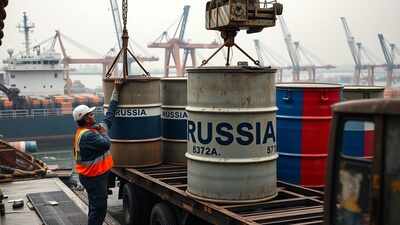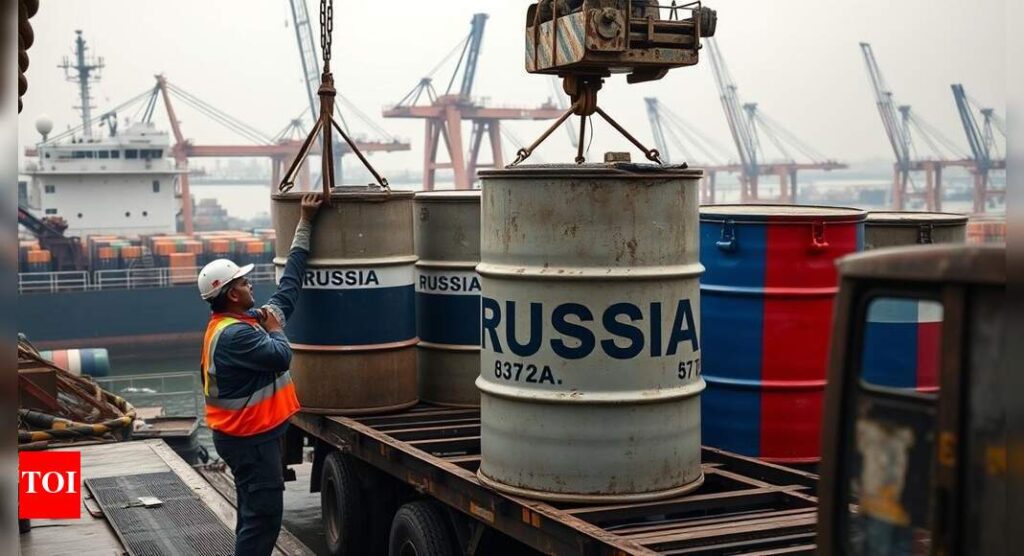
India’s exposure to a potential disruption in Russian oil exports would be limited, even as a full embargo could create serious challenges for the global economy, according to a report by Bank of Baroda. The report estimates that India’s additional oil import expenditure would be around $5 billion annually, a figure considered manageable given the scale of the country’s trade operations. “For the world economy, there could be a greater problem if there is a full embargo on Russian oil exports,” the report noted, as quoted by ANI. India’s crude import pattern has shifted significantly since the Ukraine conflict in 2021-22. While Russia supplied a minimal share of India’s oil pre-2021, it became the country’s largest supplier by 2024-25. Other major sources include Iraq (19 per cent), Saudi Arabia (14 per cent), and the UAE (10 per cent), collectively accounting for around 80 per cent of India’s crude imports. The United States, which was previously a significant supplier, has seen its share decline.Also read: First time since 2021! Faced with EU sanctions on Russia oil, India’s Nayara Energy ships diesel cargo to China Prices vary by supplier due to transport costs, oil quality, and procurement timing. In 2024-25, Iraqi oil averaged $76.83 per barrel and Russian oil $78.39 per barrel, roughly $1.56 below India’s overall import average. By June 2025, India’s average import cost stood at USD 69 per barrel, with Russian, Iraqi, Kuwaiti, Nigerian, and Brazilian oil all below $70 per barrel. India imported 244 million tonnes of crude in 2024-25, equivalent to 1.8 billion barrels. The report notes that every $1 increase in oil prices adds about $1.8 billion to import costs. Given June prices were only USD 2.50 above Russian rates, the overall impact on India is projected at USD 4.5-5 billion annually, manageable within the country’s total imports of USD 720 billion. Globally, the stakes are higher. Russia accounts for roughly 10 per cent of global oil supply, and a full embargo could temporarily push prices above $80 per barrel, creating widespread economic repercussions until alternative supplies are secured.











